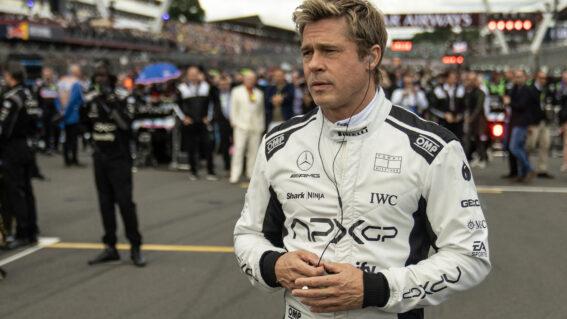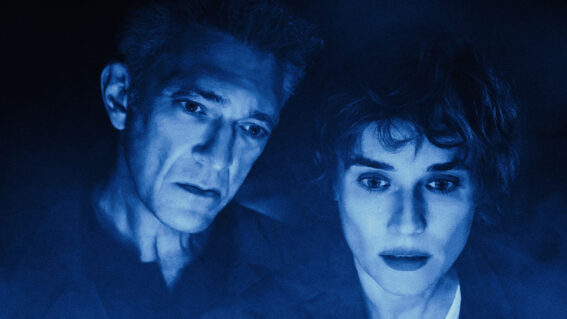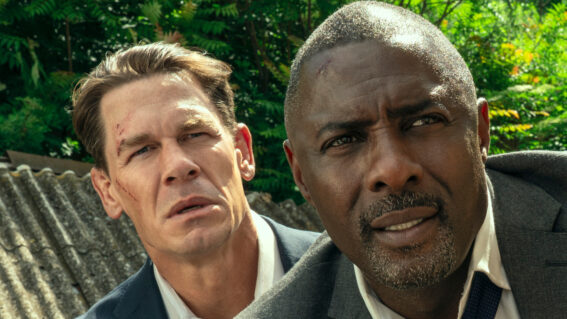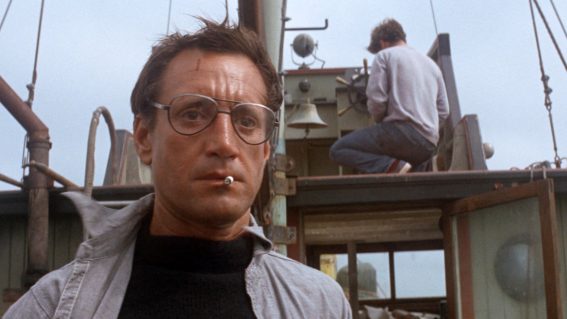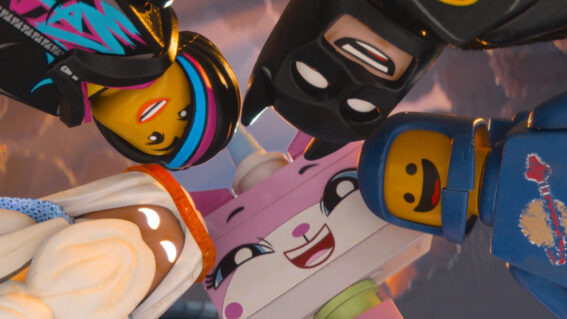Guy Pearce and Felicity Jones on their epic Oscar contender The Brutalist
Lengthy, weighty and visually enormous, The Brutalist is a big swing for the fences.
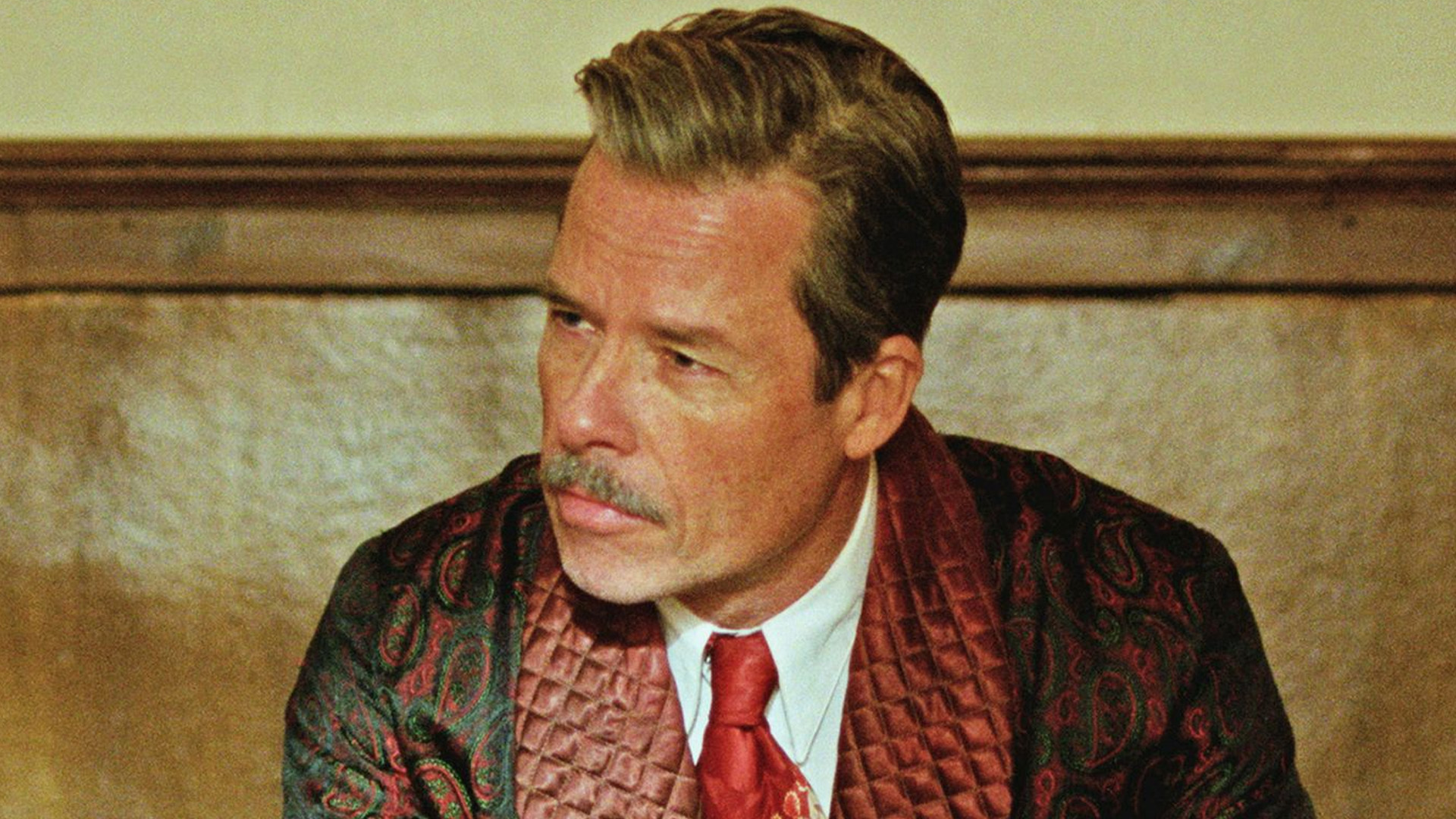
Lengthy, weighty and visually enormous, The Brutalist is a big swing for the fences. Stars Guy Pearce and Felicity Jones join Rory Doherty to discuss the ambitious awards contender.
Independently of each other, Guy Pearce and Felicity Jones describe Brady Corbet’s epic, 70mm shot, capitalist critiquing, period drama The Brutalist to me as a love triangle.
Their characters have little in common—she is Erzsébet, an educated, Hungarian Holocaust survivor, he is Harrison Lee Van Buren, a disgustingly wealthy American industrialist. Ordinarily, they would never cross paths, were it not for several nation-shifting historical events and one ambitious, compromised young man—László Tóth (Adrien Brody).
László is Erzsébet’s husband who awaits her arrival in post-war America; he is also Harrison’s pet project, an architect leading a vast, modern construction project that will cement Harrison’s prestigious (but unearned) artistic legacy. To both characters, László matters most.
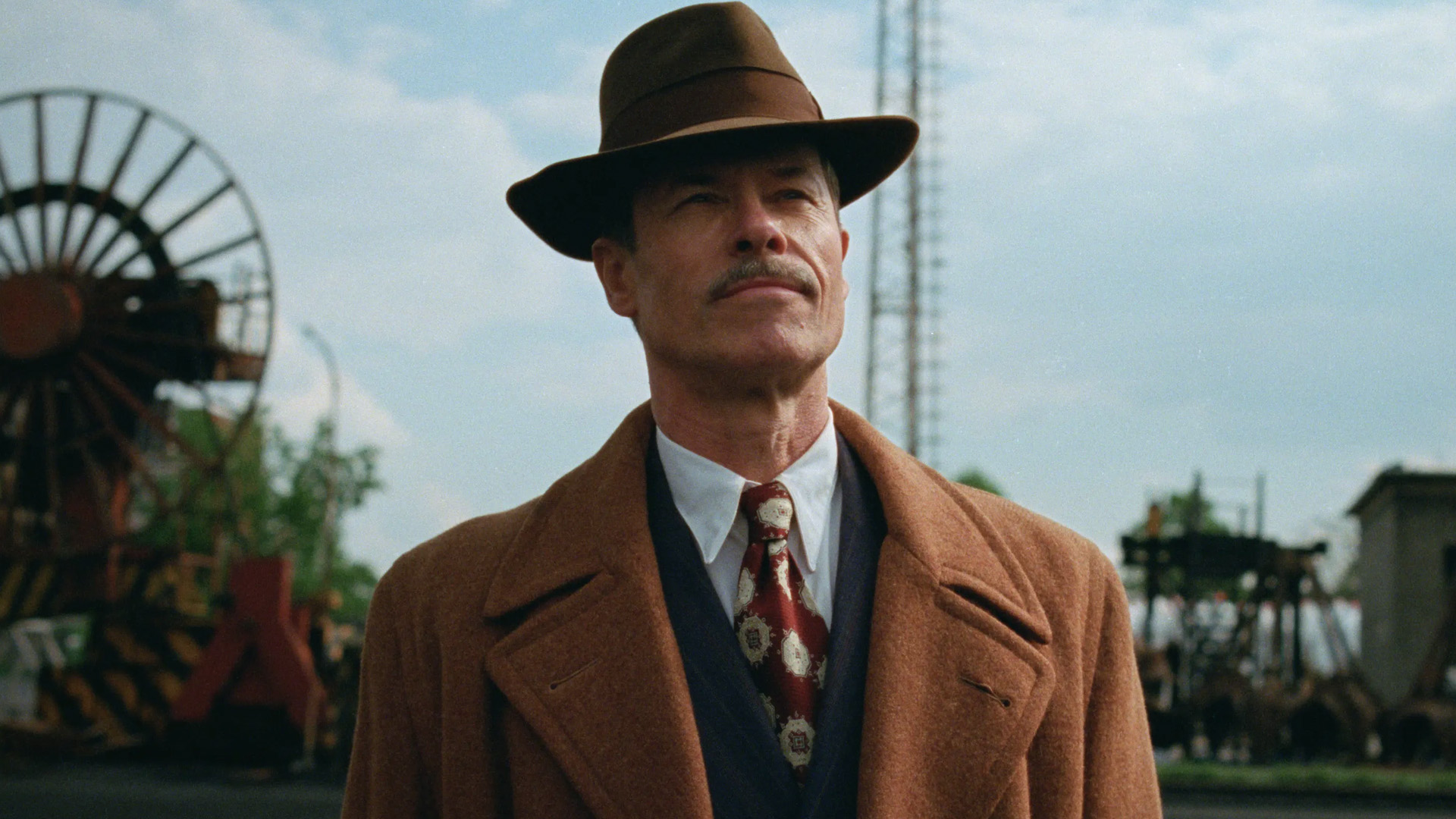
“I think it’s a real cat and mouse with her,” Pearce tells us. “We’re both in love with this other man. She’s trying to work me out, although I’m pretty a quick read, and I’m trying to work out, is this woman going to take this creation that I’ve discovered? Is she going to take him away from me, because he’s my possession now.”
Halfway through the three-and-a-half hour film (after a refreshing intermission), Erzsébet finally enters her husband’s new world, and is immediately struck by the limits of his new providence.
“She’s trying to navigate these immense male egos, and find her own ego within that,” explains Jones. “There’s a lot of balancing.”
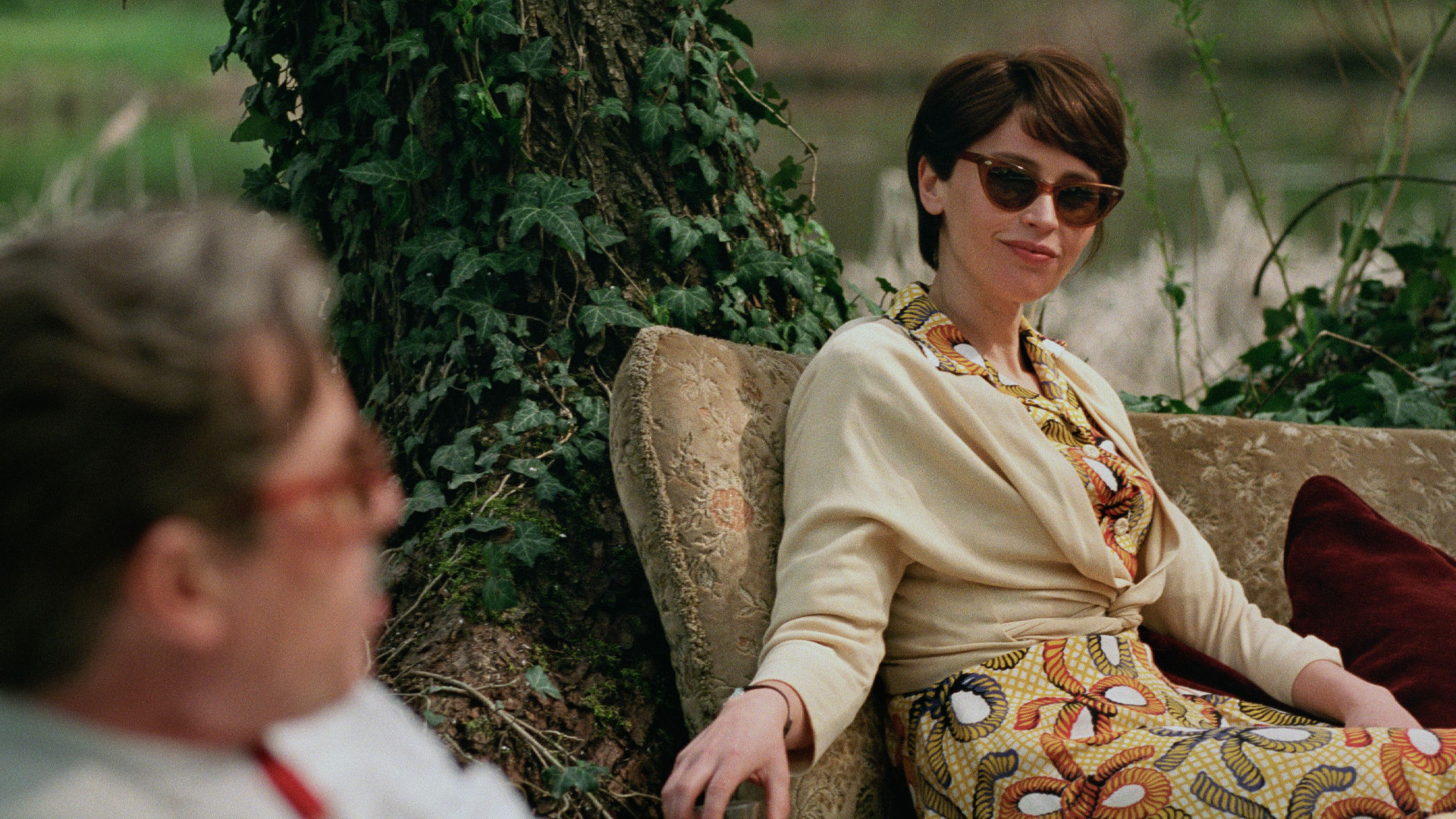
In their first dinner together, Harrison jokingly alienates László by comparing his thick Hungarian accent to his wife’s more refined, Oxford-inflicted English. “Van Buren is trying to find a chink in their relationship. He is deeply threatened by her presence,” says Jones.
“He is someone who wants to envelop and control, and he’s obsessed with László. Suddenly this new element has come along, so immediately he’s trying to find a division in them because it doesn’t suit him for them to be too much of a team. Obviously, he’s trying to align accent with intelligence. He’s trying to undermine László by complimenting his wife. I mean, it’s just utter toxicity, and she sees that.”
We always regard Harrison’s effusive support with a degree of caution (this is a man who no longer desires money, but rather legacy), something that Pearce felt was reflected in the character’s psychology.
“I think he’s extremely self-conscious. But he’s cultivated and created this version of himself, which is what the American dream is apparently all about. You can be who you want to be. So he’s his own creation, as such. He’s smart enough to know that to be generous, to be warm, to be affectionate, to be all embracing, bodes well for progression. But in actual fact, it’s all for his own self-satisfaction. He’s very selfish. So he’s running his own show.”
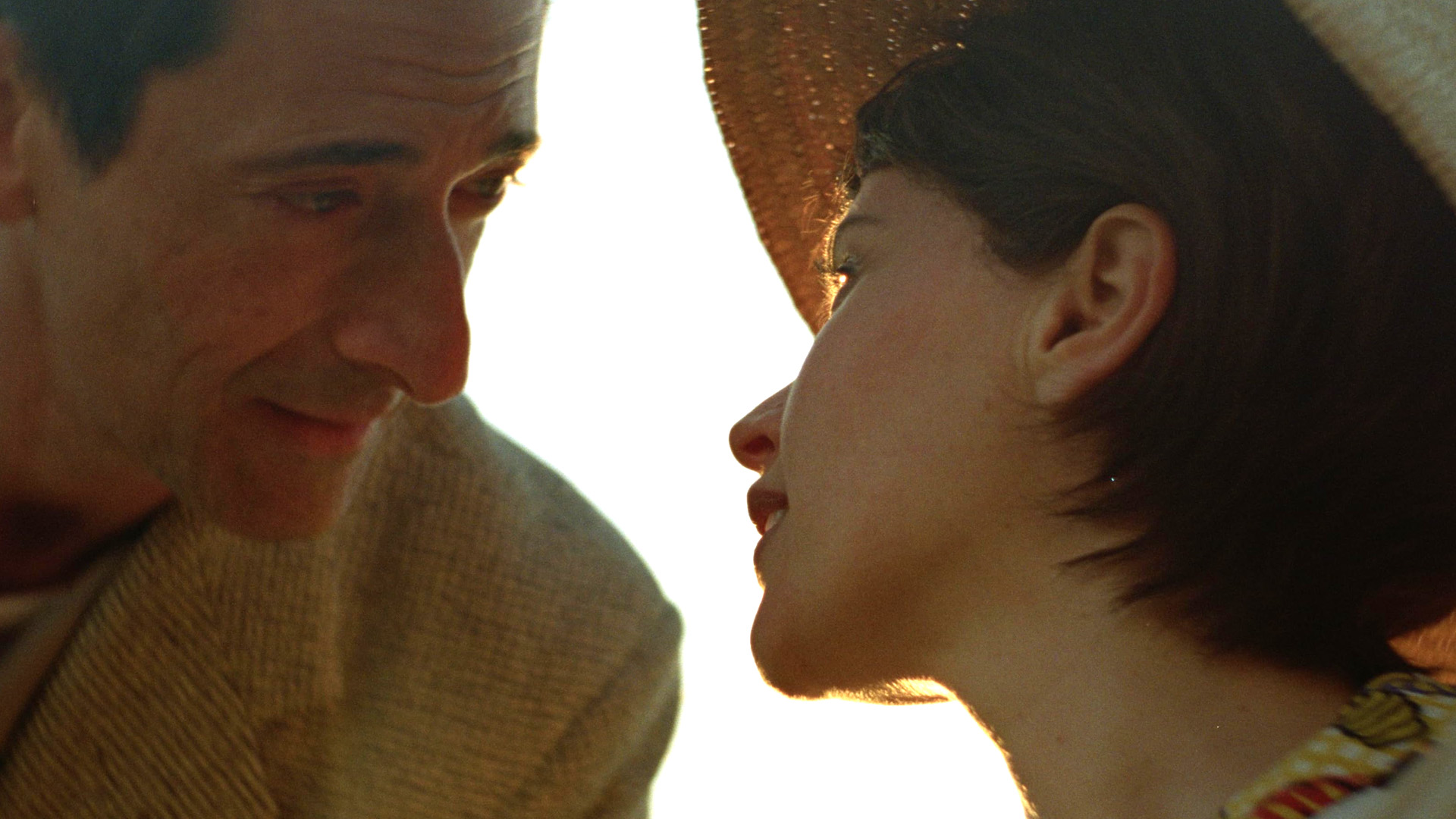
Erzsébet is totally different—confined to a wheelchair due to malnutrition in the camps, she’s able to identify the mechanisms of capitalist America in real time, with a rationalism that also feels strangely spiritual.
“There is a part of her that has transcended her physical self, I felt, because of the pain that she has gone through,” says Jones. “She has given up, to a certain extent, on human beings. She has such low expectations that she has an almost sixth sense.”
“She has a kind of Jedi-like quality. She has a force and a determination that she is not going to let that past engulf them. And she’s incredibly pragmatic.”
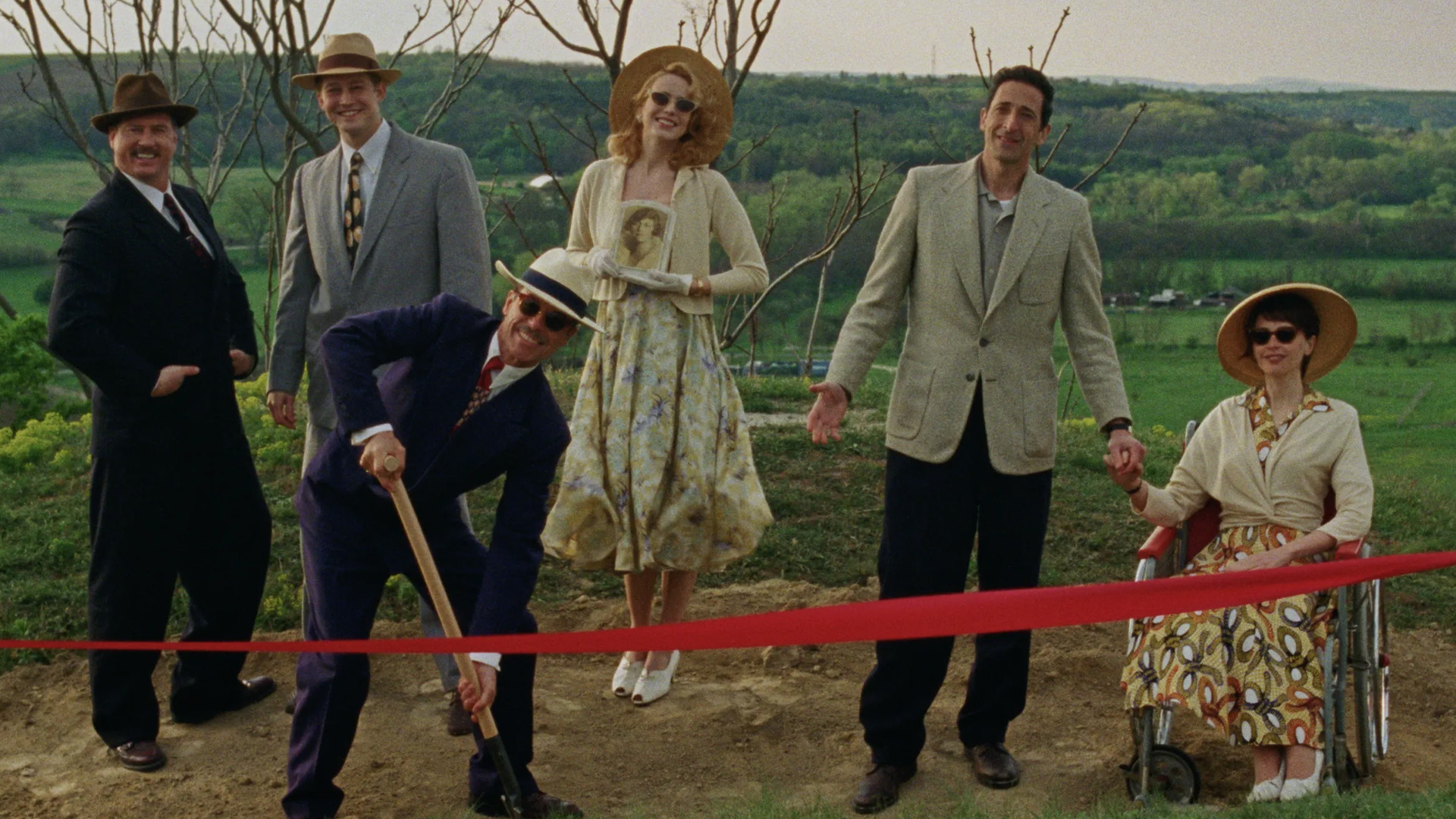
Since his debut The Childhood of a Leader, Corbet has graduated from acting in the films of European arthouse masters to making his own hyper-focused looks at how personal trauma unfolds on a vast sociological stage. On the verge of its cinema release, The Brutalist (co-written by Corbet and his wife Mona Fastvold) has already wowed critics with its Great American Novel ambition and scale—especially on a sub-$10 million budget. How did they pull it off?
“Well, you shoot it in Hungary rather than America,” offers Pearce. “It’s funny, because a lot’s being made of this minimal budget, this minimal shooting time, how on earth did we do this, etc. And I agree, you know, I’m surprised that any film can get made, to be honest. I’m more surprised, I suppose, at how much wasted money there is on bigger films, because there is a lot of wasted money.”
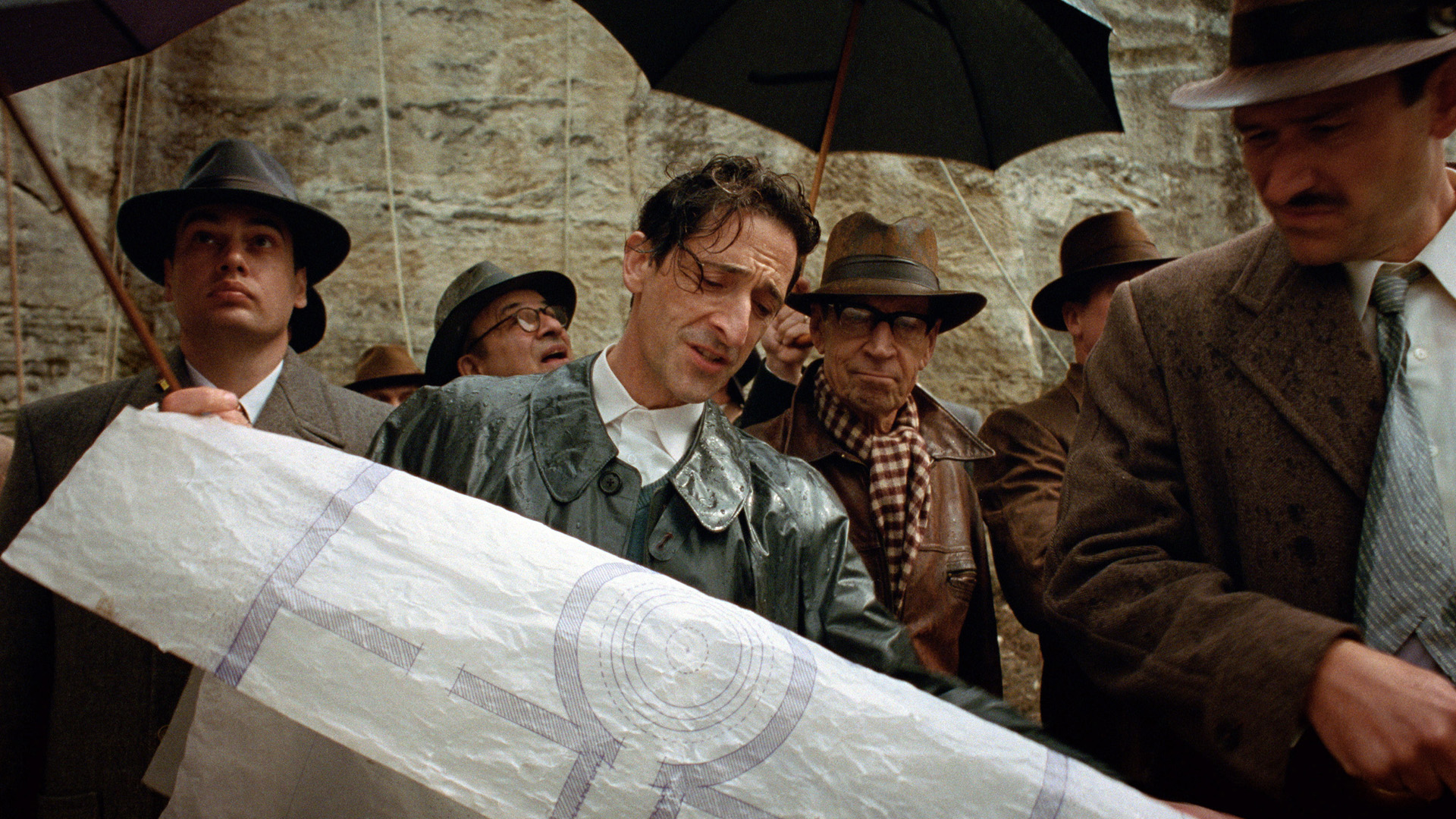
“As Brady will talk about, he made Childhood in Hungary, and after that he made Vox Lux in America, which I think was also about a ten million film. He said he only saw about a third of the budget on the screen. […] He’s basically indicating, if you want to see ten million dollars on the screen, you’ve got to make the movie somewhere where the money’s not going out through the door unnecessarily.”
By the time the actors arrived on set, Corbet and his collaborators had arranged the perfect collaborative stage. As Jones explains, “When you have a writer director, with Brady and Mona, you trust that material is so in them, that there is often a great confidence that you have in the director. I think with this, Brady is the perfect, benign dictator, in that he gives everyone room to do what they need to do, it is a collaborative effort, but he has a very strong vision of where the film is going—and you intuit that.”













